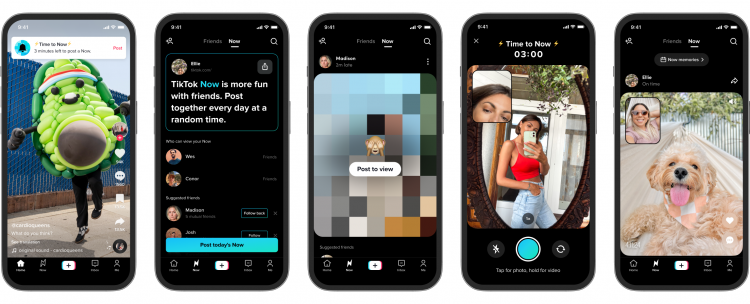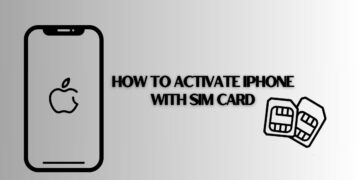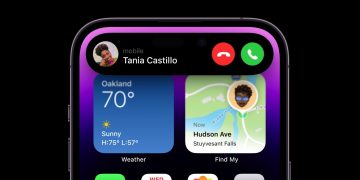Welcome back to This Week in Apps, the weekly TechCrunch series that recaps the latest in mobile OS news, mobile applications and the overall app economy.
Global app spending reached $65 billion in the first half of 2022, up only slightly from the $64.4 billion during the same period in 2021, as hypergrowth fueled by the pandemic has decreased. But overall, the app economy is continuing to grow, having produced a record number of downloads and consumer spending across both the iOS and Google Play stores combined in 2021, according to the latest year-end reports. Global spending across iOS and Google Play last year was $133 billion, and consumers downloaded 143.6 billion apps.
This Week in Apps offers a way to keep up with this fast-moving industry in one place with the latest from the world of apps, including news, updates, startup fundings, mergers and acquisitions, and much more.
Do you want This Week in Apps in your inbox every Saturday? Sign up here: techcrunch.com/newsletters
Want to attend TechCrunch Disrupt? Click here for 15% off passes (excluding online and expo).
It’s time to BeReal…on TikTok
Image Credits: TikTok
We expect to see this sort of copy-and-pasting from Meta — or even Snap and YouTube these days — as the major tech companies try to figure out how to compete with TikTok’s short-form video. But typically, it’s TikTok that’s being copied from, not the one doing the copying. That changed this week, however, when the company announced it was launching a fairly shameless BeReal clone in its app, which it calls “TikTok Now.”
Similar to the hot Gen Z app BeReal, TikTok Now will prompt its U.S. users to take a front and back camera photo or 10-second video at a random time every day, which is then shared with friends in a new section labeled “Now” in the app’s main navigation — quite a prominent position for an unoriginal feature.
The addition initially seems like an odd one for TikTok, given its primary focus is on video entertainment, not friendship-focused social networking, which is what BeReal’s all about. But we have seen some signs in recent months that TikTok’s ambitions are aimed at taking on both areas. The company has been pushing more features designed to connect its users with their real-life friends on its app, for example by asking for access to users’ address books, and even swapping out its Discover tab for a Friends tab. Plus, as you browse your For You feed, you’ll also see recommendations of people to follow. Some users report that people they know have been finding their TikTok accounts thanks to what appears to be based on address book-based phone number matching, as well. (And they’re not all happy about it.)
Meanwhile, TikTok hasn’t been entirely transparent about what it’s up to here, but this BeReal clone makes it a lot more obvious: it wants users’ friend graphs. It wants to be a social network, too.
This reason is simple. Younger, Gen Z users are adopting new online behaviors when it comes to social networking. They’re moving away from older social networks, like Facebook, and have even begun to find Instagram increasingly crowded and annoying with its Reels focus. Gen Z instead is using video networking on apps like Yubo, and checking in on close friends through apps like BeReal. If TikTok doesn’t move into these areas, too, then this in-demand demographic will continue to take part in these new networking experiences in other apps, potentially impacting the time they have to spend on TikTok — which hurts its own business. It would also prevent TikTok from developing features that cater to real-world friends in the future, which could make its app more comprehensive than the video timewaster it is today.
iOS 16 adoption is faster than iOS 15
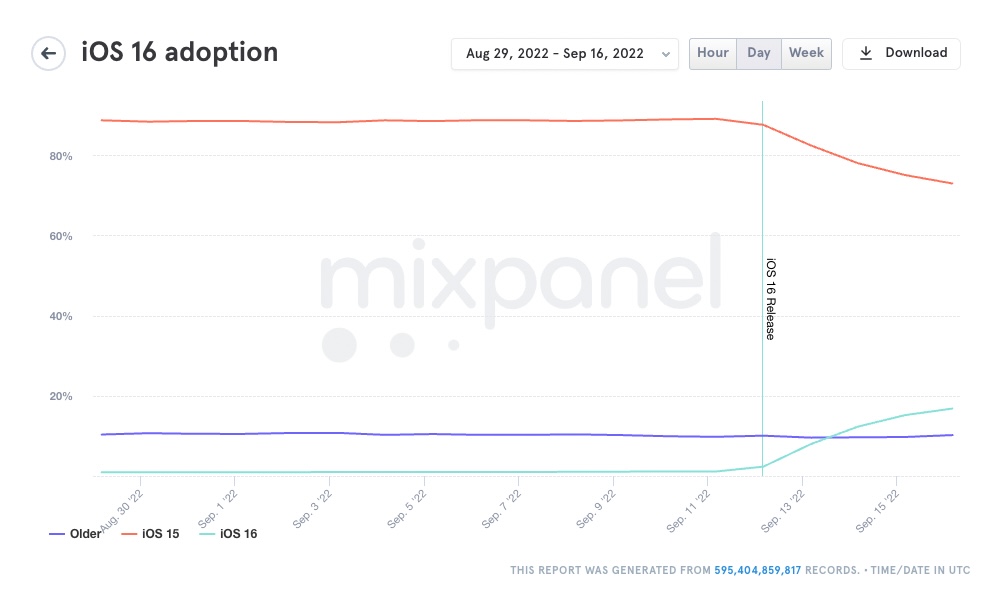
Image Credits: Mixpanel
According to data from Mixpanel (via iMore), there’s greater consumer demand for iOS 16 compared with the release of iOS 15 last year. After the first 24 hours, iOS 16 had been downloaded by 6.71% of users, versus 6.48% of users who downloaded iOS 15. However, both updates had trailed iOS 14, which reached 9.22% of users its first day. However, iOS 14 was a major consumer update, as it introduced Home Screen widgets for the first time. While iOS 16 brings another widget format — Lock Screen widgets — other features, like Live Activities, are still to come.
As of Friday, Mixpanel notes iOS 16 has 16.76% adoption, but 72.98% of users are still on iOS 15 at this time; 10.26% of users are on an even older OS.
Social media cos get grilled by the Senate

Image Credits: Photo by Alex Wong/Getty Images / Getty Images
The social app makers were hauled into Congress for another hearing this week. After having to answer for their lack of minor protections in their apps last year, this time around the companies were testifying before the Senate Homeland Security Committee about what risks they may pose to national security. For Meta, the hearing was a much-needed reprieve as many of the senators had their eyes on TikTok instead — especially after reports that TikTok U.S. user data was accessed by employees in China.
The companies were asked to disclose the number of full-time employees they have on their trust and safety teams, but all except Twitter refused to answer. Twitter, however, said it it has 2,200 people working on trust and safety across its platform, though it wasn’t clear if some did other work. Meta was asked how many of the 40,000 people it reportedly had on trust and safety were focused on non-U.S. users and non-English language issue, and the company didn’t answer.
TikTok, meanwhile, was pressed hard on its relationship with the Chinese government. COO Vanessa Pappas denied the reporting from BuzzFeed about employee access to user data and dodged other questions — including one about how many of its employees were members of the Chinese Communist Party. She also said TikTok was not collecting U.S. users’ biometric data, even though the company had quietly updated its privacy policy last year to allow it to do so.
Adobe’s big bet on Figma
Adobe’s stunning $20 billion acquisition of digital design company Figma this week was a big bet that takes out one of its biggest rivals, even if it meant paying twice as much as Figma’s most recent private valuation. What does this mean for the company going forward, and what other design startups could be next? TechCrunch+ has the answers.
This Week in Apps readers can take 15% off an annual pass to TechCrunch+ with the code “TWIA.”
Platforms: Apple
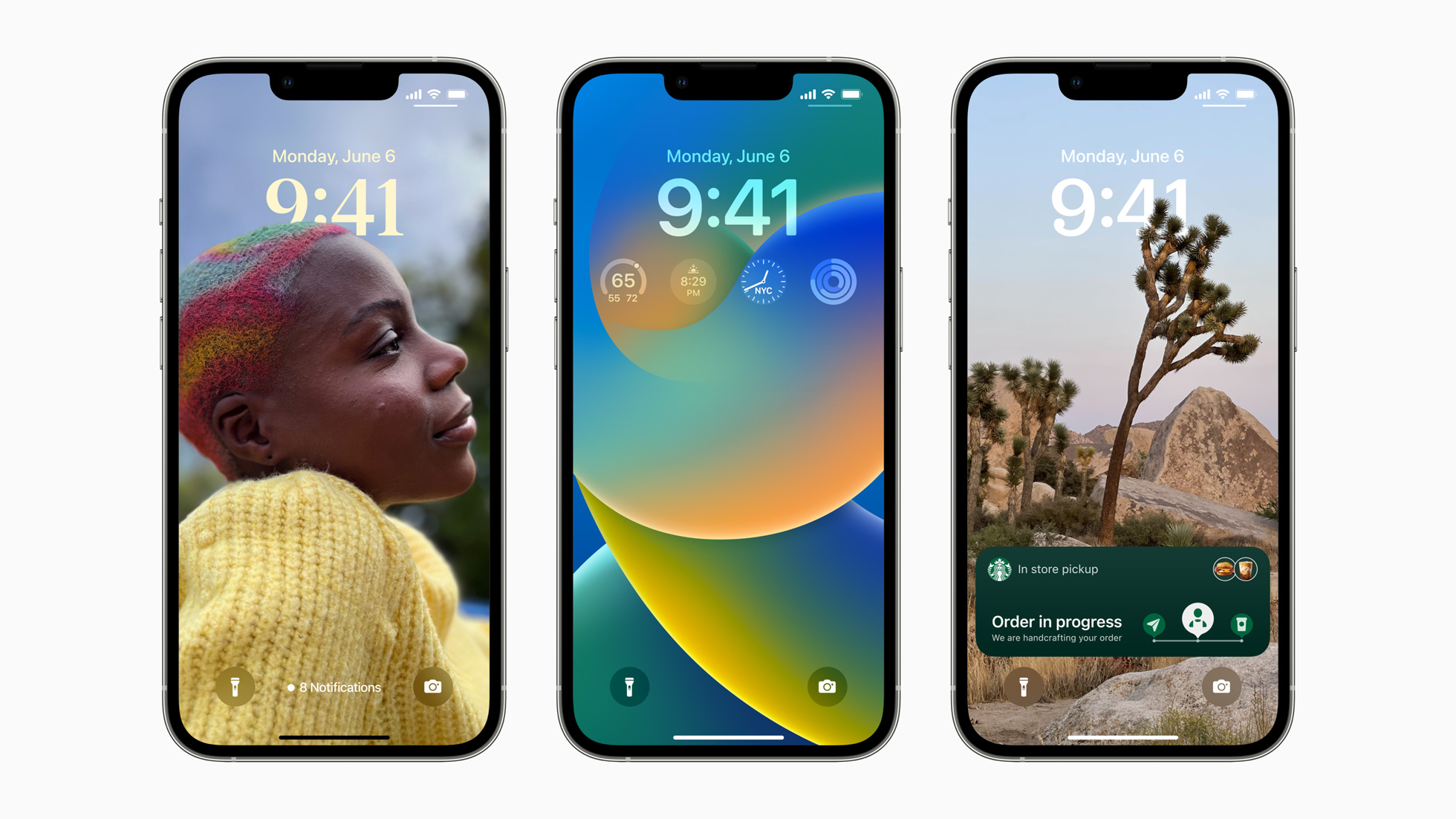
Image Credits: Apple
- iOS 16 debuted. The latest version of Apple’s new mobile operating system arrived right on time, allowing users to take advantage of upgrades like Lock Screen widgets, Focus filters, the ability to edit and unsend iMessage text, background cutout for photos, security and privacy improvements, updates to Apple’s first-party apps and more.
- Apple also updated its other OSes, including the release of watchOS 9, which brings new watch faces, an improved Workout app, sleep stages, an AFib History feature, redesigned Compass app and new Medications app.
- Apple’s tvOS 16, meanwhile, brought more under-the-hood improvements, like support for Nintendo Switch controllers, HDR10+ and the ability for TV apps to leverage data from other Apple devices (e.g. Apple Fitness+ will show your workout metrics on-screen).
- iPadOS 15.7, macOS Monterey 12.6 and macOS Big Sur 11.7, were released as well.
- WeatherKit subscriptions launched alongside iOS 16. The service is meant to replace the weather service from Apple-acquired Dark Sky, which is shutting down. WeatherKit delivers up to 500,000 API calls per month for weather and forecast data to registered Apple Developer Program members before pricing kicks in.
- Apple told developers this week they would soon be able to buy new Search Ad spots on the App Store. The company invited developers to a session to learn more about the ad slots, which should be live by the holiday season.
I’m unsure if a timeline for Apple’s new ad placements in the App Store had previously been announced, but it appears that they’ll be live for the “holiday season” pic.twitter.com/drcgIAYlTo
— Eric Seufert (@eric_seufert) September 13, 2022
Platforms: Google
- Google began rolling out Play Store reviews tailored to your device — a feature it first announced in August 2021.
- Google said it would make the newly approved emojis available to Android users by the end of the year, after the Unicode Consortium published the Unicode 15.0 standard on Tuesday with 31 new emojis. The additions include a pushing hand, a shaking face (or I’m SHOOK), a moose, a goose, the long-awaited pink heart and a Wi-Fi/wireless sign.
Commerce
- Supermarket chain Wegmans said it will shut down its in-store scan-and-go app on Sunday, September 18, 2022, stating that it experienced too many losses from the SCAN program to continue making the mobile app available.
- Walmart introduced new virtual try-on technology, which uses customers’ own photos to model the clothing across a range of brands. The new feature, “Be Your Own Model,” expands on the existing option to choose from one of more than 100 existing models of different heights, sizes and skin tones. Initially, users will be able to take their photos with the Walmart iOS app to virtually try on clothes from Walmart.com.

Image Credits: Walmart
Fintech
- Coinbase updated its app to allow U.S. users to see a scorecard that evaluates members of Congress on crypto policy issues and pushes them to register to vote and locate political events.
- It was also merge week for Ethereum! Here’s what comes next.
Social
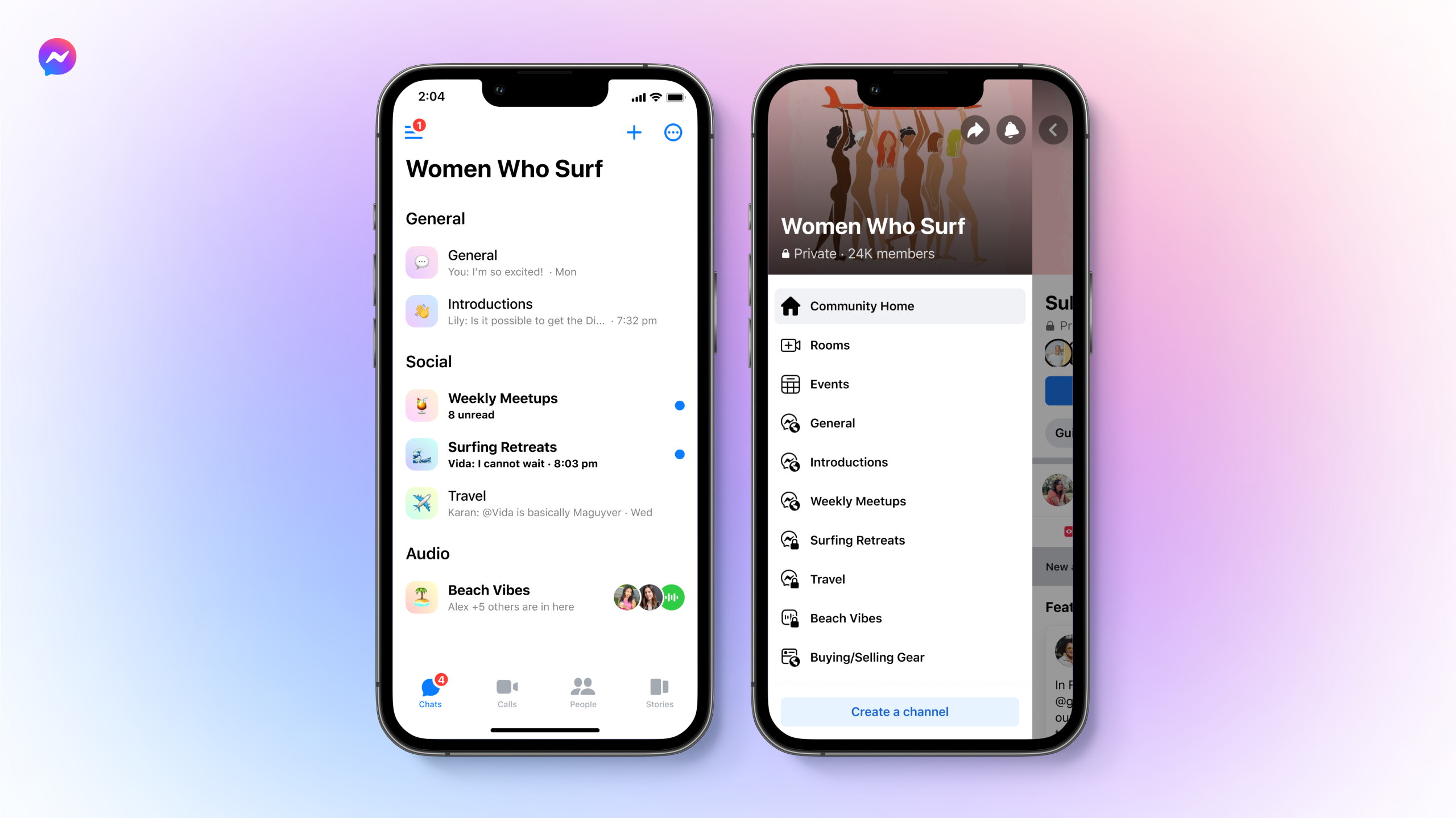
Image Credits: Meta
- Facebook introduced Community Chats, a new feature that connects Facebook Groups in Messenger via text, audio and video chats. The feature also offers categories and admin-only chats, as well.
- Internal Meta research, reported by The WSJ, indicated that Instagram users are spending 17.6 million hours per day on Reels, far short of the 197.8 million hours per day spent on TikTok. In addition, one-third of Reels were found to be recycled from other platforms.
- Twitter shareholders voted to approve Elon Musk’s proposed $44 billion buyout of the platform, even as Musk tries to cancel the deal. The vote was held on the same day that former Twitter security lead Peiter Zatko testified before Congress about his whistleblower report documenting the security and privacy lapses at the company.
- Instagram began internally testing a tipping feature, “Gifts,” that gives creators a new way to make money through Reels.
- French social app Yubo said it will begin to verify all users’ ages using facial recognition technology. The startup is using Yoti’s age estimation technology, which uses the phone camera to take a photo and a short video of the user’s face, verifying ages with 98.9% accuracy. The company has 60 million users and had initially started verifying ages of those who said they were younger, like 13 or 14 years old.
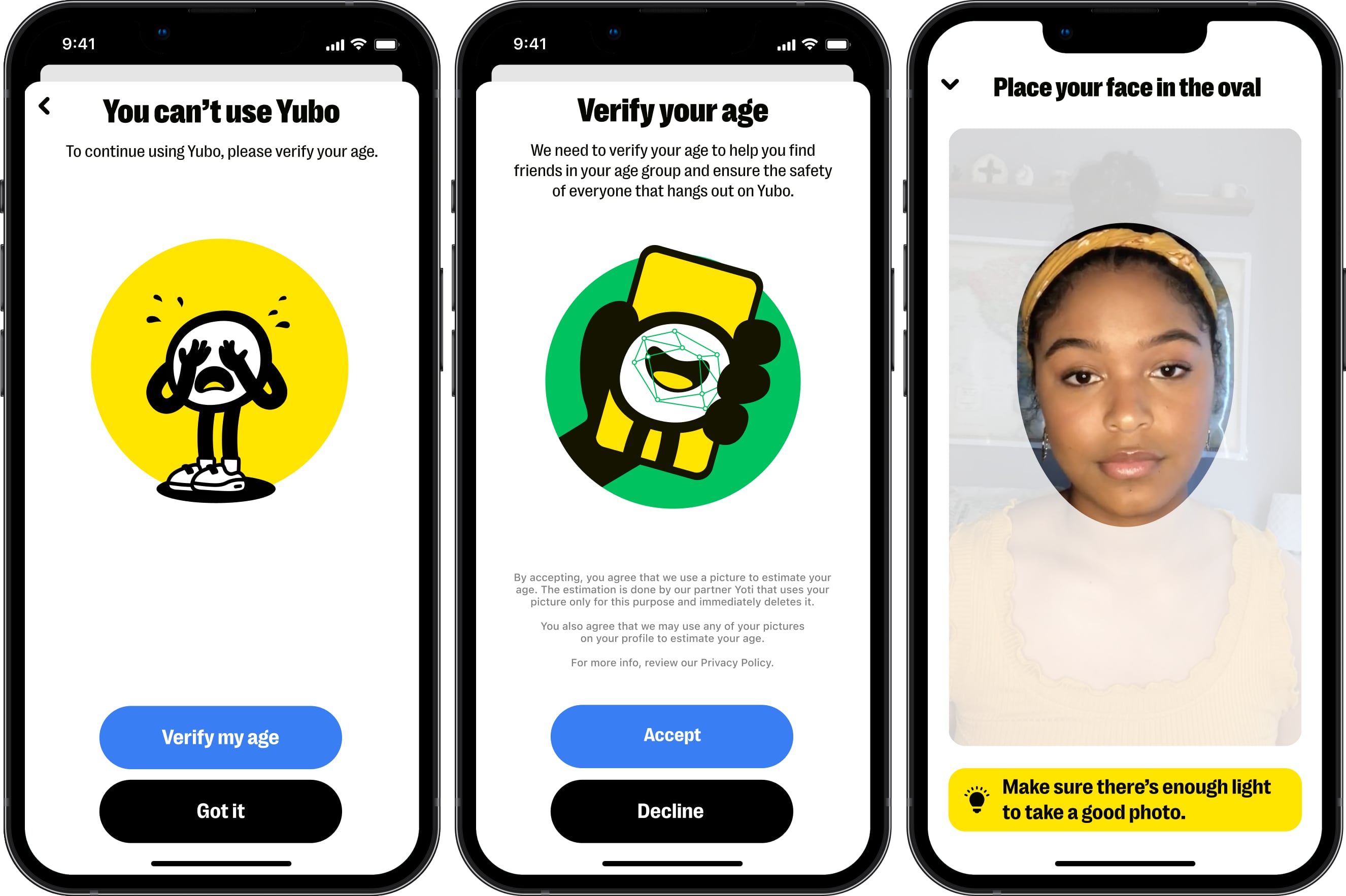
Image Credits: Yubo
- Discord launched a new Forum Channels feature to help server owners better organize conversations. The feature involves sub-channels that can be used to branch off conversations about particular topics or to avoid having to create another channel for focused conversations.
- Snapchat for Web began to roll out to all users worldwide, after initial tests as a Snapchat+ feature. The web version allows users to send messages and snaps, chat via video and voice, and access the mobile app’s messaging features, like chat reactions. It also includes more than 10 Lenses for video calls.
Photos

Image Credits: Google
- Google Photos redesigned its Memories feature with vertical swiping, more video and other creative tools. The service will automatically select and trim the best snippets from your longer videos using machine learning as part of its enhancements to Memories and will add a new collage-making tool, the ability to share Memories with friends and more.
- Apple updated its iOS 16 web page to note that the iCloud Shared Photo Library feature is not coming until “later this year,” instead of launching with iOS 16 on Monday, September 12.
Messaging
- WhatsApp is making movies, Variety reported. The messaging app owned by Meta is introducing its first original film this month, a project featuring NBA All-Star MVP Giannis Antetokounmpo’s life story. WhatsApp plans to release the film on September 21 across its social media channels, YouTube and Amazon Prime Video. The story is actually branded content as it will communicate how WhatsApp brings people together.
- Communications startup Sendbird announced it would now allow customers to add livestreaming combined with chat in their apps with a couple of lines of code, via a new product called Sendbird Live.
Streaming & Entertainment
- Twitter began rolling out podcasts in its redesigned Spaces tab to all its Twitter Blue subscribers, after initially testing it with a subset of Twitter users. The feature adds personalized hubs called “Stations” that group together content by topic, like news, music, sports and more.
- TikTok competitor YouTube Shorts launched a new feature that more closely integrates the feature with YouTube Music. Now, users can save songs they discover in Shorts to listen to later in YouTube Music, via a custom playlist, “Sounds on Shorts.”
- Spotify and Wattpad struck a deal to launch a series of exclusive podcasts in Indonesia and the Philippines to bring popular web novels to life, including “My Ice Girl,” which has 22 million reads on Wattpad; “The Four Bad Boys and Me,” which has 321 million reads; and “For Hire: A Damn Good Kisser,” which has 42.1 million reads.
- Spotify’s Live streaming platform is not going well. The company this week had to cancel a performance by Ghost, claiming the demand for the event had caused technical difficulties. (One Twitter user noted that may not have actually been the case, but rather the access password had leaked causing other users to pop up rooms with people who hadn’t been invited, they said.)
- YouTube’s video platform, Shorts, may soon offer creators to earn payments and place ads in their videos, The NYT learned. It expects to announce the changes on Tuesday.
- YouTube also this week introduced a new feature that would allow creators to make new Shorts directly from their video’s comments. The feature very much duplicates similar functionality on TikTok, where creators can turn comments into new videos allowing them to continue the conversation or respond to users’ comments with a rebuttal or further explanation of their own.
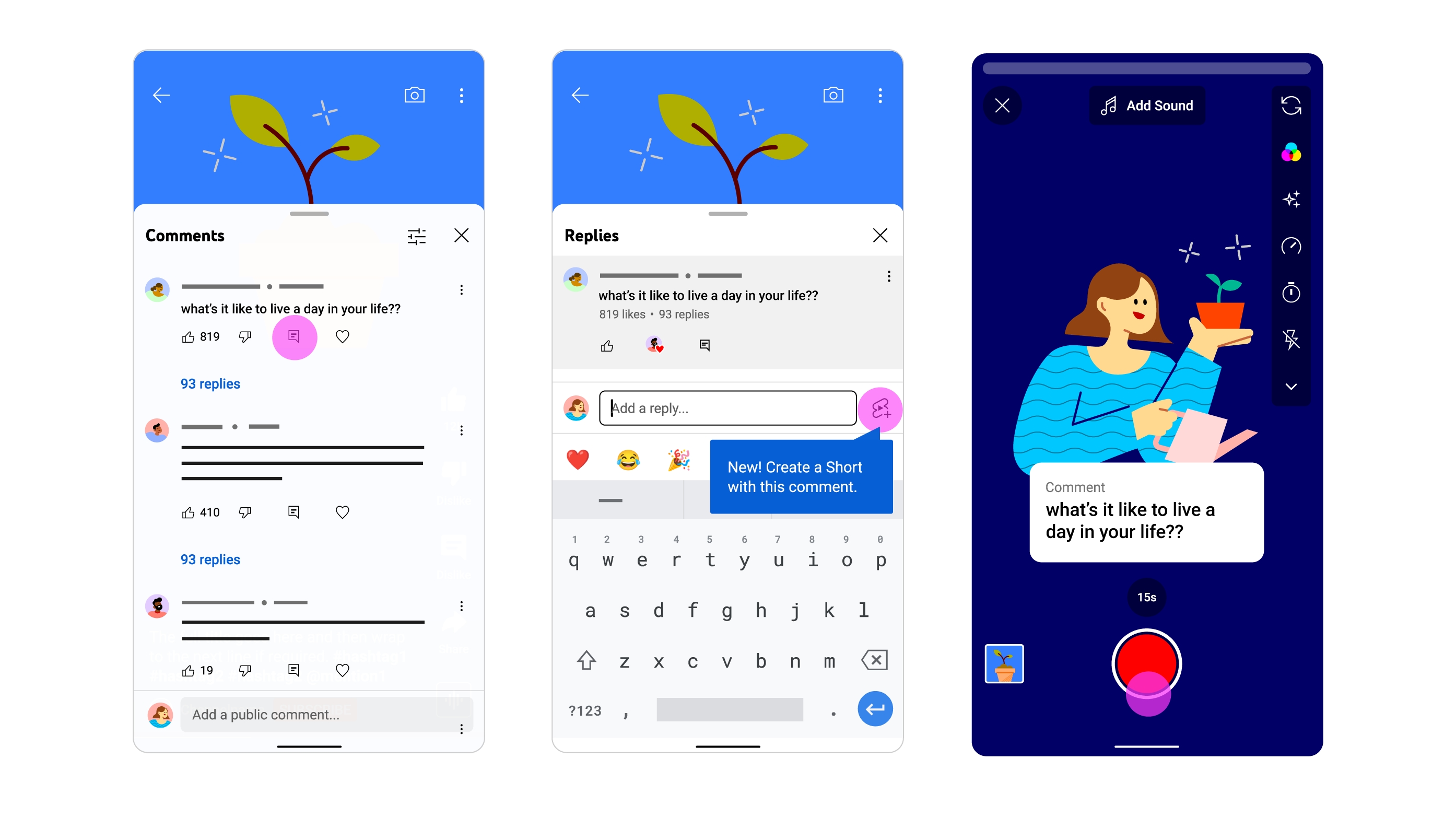
Image Credits: YouTube
- Amazon announced its live radio app Amp, a sort of Spotify Live or Clubhouse competitor, would gain a new creator fund that will help reward creators who build engaging shows and attract a loyal audience. The company said it allocated “millions of dollars” for this fund, but declined to provide an exact figure. It said payouts to creators would vary.
Dating
- Grindr appointed George Arison as CEO, starting on October 19, ahead of its planned SPAC merger. Arison had previously helped the auto marketplace Shift go public via a SPAC in 2020.
Gaming

Image Credits: Netflix
- Snowman, the maker of popular mobile games like Alto’s Adventure, Alto’s Odyssey, and Skate City, launched its latest new game exclusively with Netflix. The studio’s new vertical scrolling platformer, Lucky Luna, comes to iOS and Android devices through Netflix Games.
- Tencent pulled in $2.6 billion in its video game segment during the first half of 2022, accounting for nearly 10% of the U.S.’s $27 billion gaming app market. ByteDance was in second place at $1.3 billion.
- Chinese regulators approved paid games from Tencent and NetEase for the first time since July 2021, when it began a crackdown on the tech sector. Among the 73 new publishing licenses that were approved, 69 were for mobile games. Other developers also received licenses, including Zhong Qing Bao, Leiting, XD Inc. and CMGE Technology Group.
Health & Fitness
- Following the overturn of Roe v Wade, the period-tracking app Flo launched a new “anonymous mode” feature on iOS which gives users the option to use the app without their name, email address or technical identifiers associated with their health data. The feature will come to Android next month.
Utilities
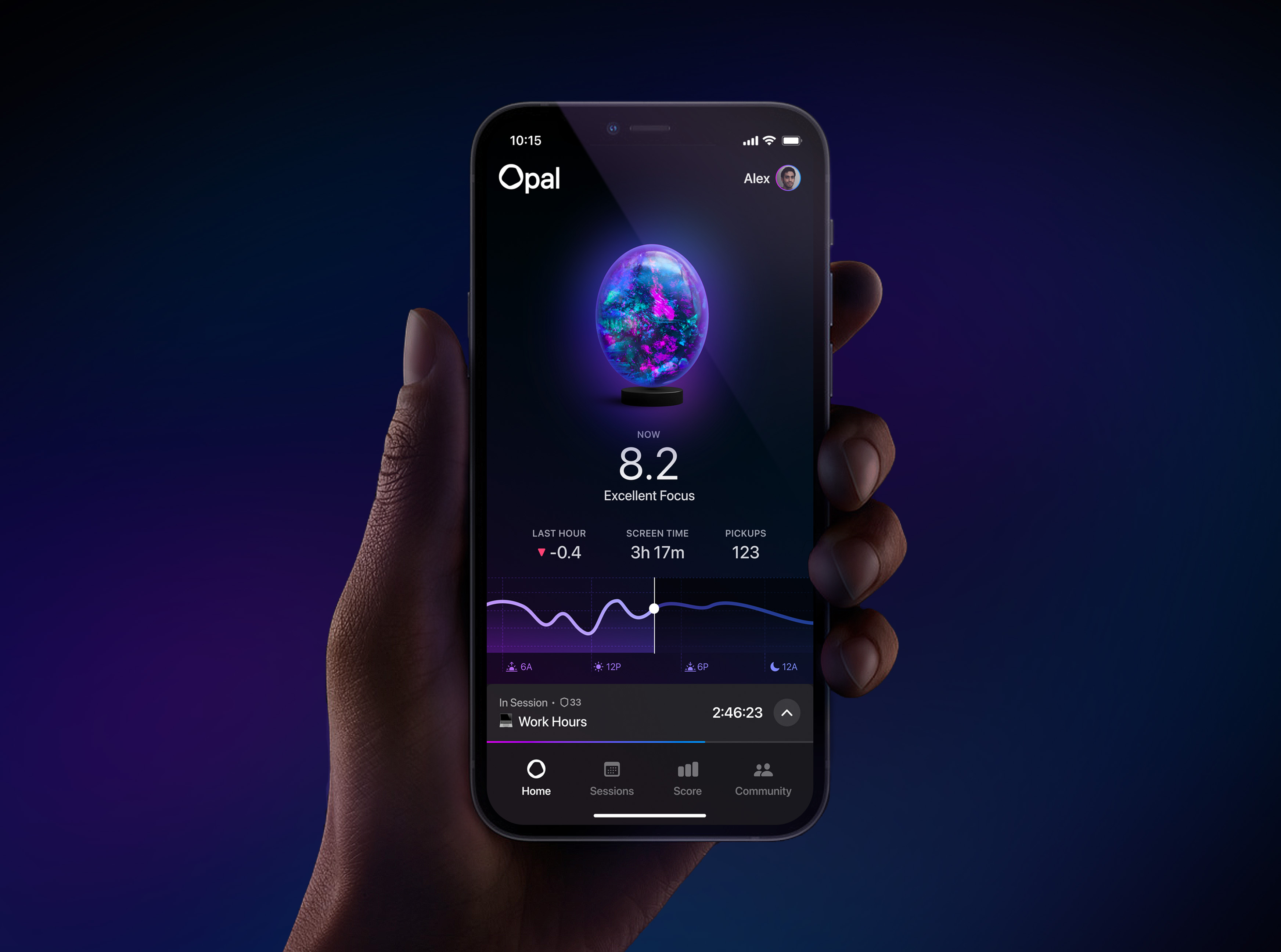
Image Credits: Opal
- Opal, a “digital well-being assistant,” rolled out a rebuilt version of its app designed to help individuals better monitor and manage their screen time usage. While most screen time apps are focused on helping parents manage their children’s screen time, Opal is aimed at anyone who wants to create better digital habits. The older version relied on a VPN to manage access to certain apps, but the new Opal now uses Apple’s Screen Time API to provide reports on screen time usage and temporarily block users from their distracting apps.
Government & Policy
- An EU court backed the European Commission’s decision to fine Google over Android antitrust breaches, but lessened the fine from €4.34 billion to €4.1 billion.
- South Korea’s privacy regulator fined Google around $50 million and Meta $22 million for failing to obtain user consent when collecting behavioral data for showing tailored ads.
- California passed a new law on Thursday, the California Age-Appropriate Design Code Act, that will make it the first state to introduce legislation aimed at protecting the well-being, data and privacy of children using online platforms. The law requires online platforms to “consider the best interest of child users” and to default to privacy and safety settings that “protect children’s mental and physical health and wellbeing,” a press release noted. It also prohibits companies from using a child’s personal information, profiling children by default, encouraging them to disclose personal information or collecting, retaining or selling their geolocation data, among other things.
Security & Privacy
- Apple released a round of security updates to patch zero-day flaws in iOS and macOS.
- TechCrunch’s Zack Whittaker took a dive into iOS 16’s new security and privacy features, including Lockdown Mode, Rapid Security Response, Safety Check, Passkeys and changes to copy and paste permissions.
- Uber is facing a cybersecurity incident involving a hacker who breached its internal network after using social engineering techniques to compromise an employee’s Slack account. Uber says there’s no evidence sensitive info, like trip histories, was accessed.
The Uber hack is quite severe and wide ranging. Wishing their blue teams the best of luck and love during this understandably difficult period. Some thoughts & observations based on what we’ve seen so far 👉 1/N
— Bill Demirkapi (@BillDemirkapi) September 16, 2022
- A messaging app for parents and teachers, Seesaw, was compromised by hackers using a credential stuffing technique to send out an explicit image. The app has 10 million users.
- A new warning about fake App Store pages is going around. The pages are designed to look very much like an App Store page but have slight differences that savvy users might notice like a green download button, for instance. If clicked, the page may take users to download malware.
🤝 In a massive deal, Adobe announced plans to acquire UI design and prototyping tool Figma for around $20 billion, half in cash and half in stock. Figma CEO Dylan Field will continue to lead the company following the deal close. The deal also includes 6 million additional restricted stock units granted to Figma’s CEO and employees that will vest over four years following the closing. Figma has around 4 million users and had grown to become a competitor to Adobe’s creative tools.
💰 Nigerian financial management app for merchants, Kippa, raised $8.4 million in seed funding from a number of investors, including Goodwater Capital, TEN13 VC, Rocketship VC, Saison Capital, Crestone VC, VentureSouq, Horizon Partners and Vibe Capital. The bookkeeping app helps small and medium businesses in sub-Saharan Africa and counts more than 500,000 merchants on its platform.
💰 Denmark-based podcast subscription service Podimo raised €58.6 million (~$58.4 million) led by 83North, Highland and Saban, bringing its total raise to date to €162 million. The app offers personalized recommendations, full-length videos, a skip intro feature and more to users in Denmark, Germany, Spain, Norway, the Netherlands, Finland and Latin America.
💰 A mobile bank for migrants, Majority, closed on $37.5 million in Series B funding, $30 million of which is in equity financing led by Valar Ventures and others. This is the third venture round for the startup in just over a year.
📉 General Atlantic is buying out SoftBank’s entire 15% stake in the Norwegian edtech game platform, Kahoot. SoftBank, which had invested $215 million into the company, is exiting at a loss as 15% of Kahoot’s current market cap (10.415 billion Norwegian Krone) is around $152 million (1,562,250,000 NOK).
iOS 16 Lock Screen widgets
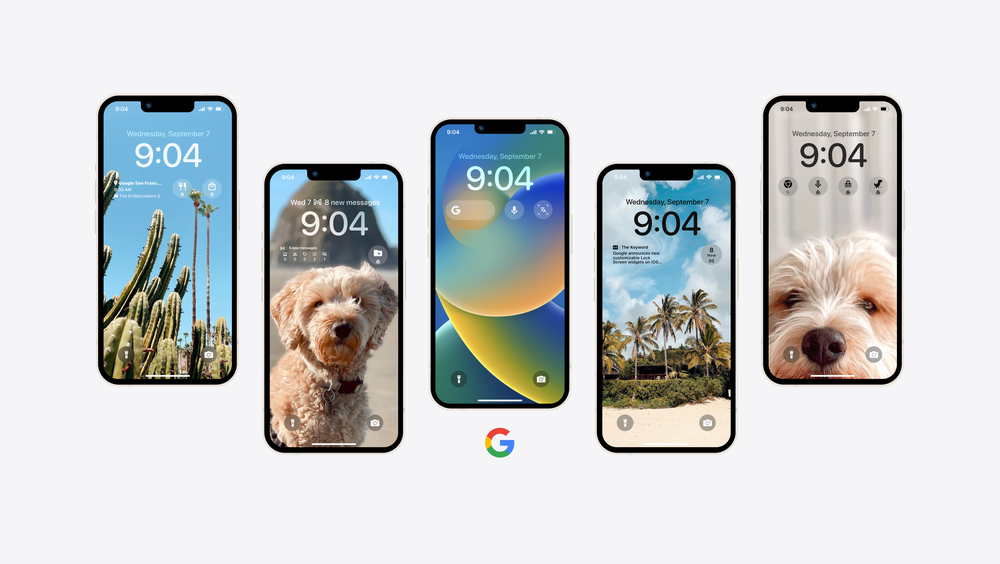
Image Credits: Google
This week, everyone was rolling out their iOS 16-optimized apps. TechCrunch took a look at a number of these new releases, including those from major tech companies and indie developers.
The big winner of the Lock Screen widget race was Top Widgets, the generically named widget from a Chinese tech company that offers a variety of widget styles, including informational dashboards and even animations for the Lock Screen, appealing to a younger, Gen Z crowd. Following the release of iOS 16, Top Widgets gained 1.3 million downloads in just two days’ time.
Get started with widgets
- TechCrunch shared a round-up of over 25 apps that have added Lock Screen widgets across categories like personalization, travel, work, cooking, weather and more. If you’re looking to try a variety of widgets to figure out which you like best, this is a good place to start.
A few more favs
TechCrunch also highlighted a few widget makers individually, as they released, from smaller companies outside of Big Tech. These included:
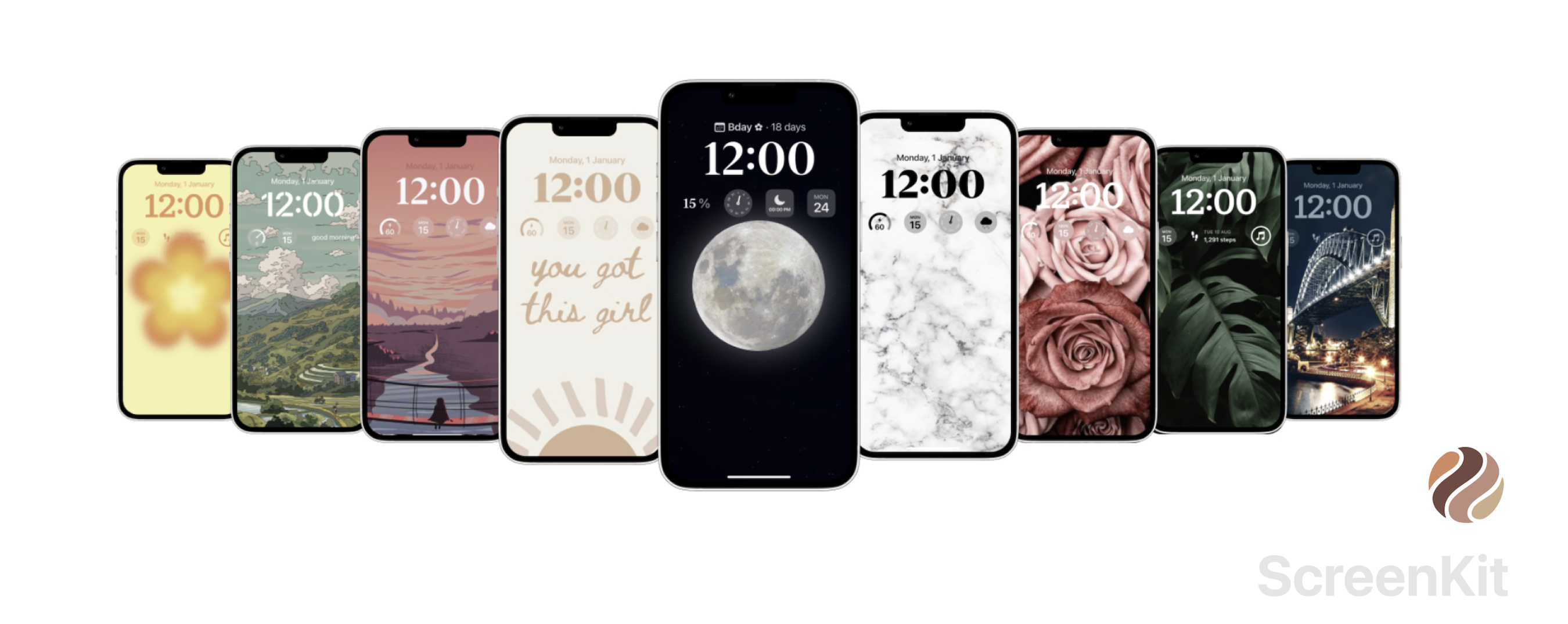
Image Credits: ScreenKit
- Apollo’s iOS 16-optimized app brings Reddit to your Lock Screen with widgets for Trending posts, quick access to a favorite subreddit and updates on things like upvotes, comments, karma and more. It also included fun little features, like a widget that shows how far you’ve scrolled Reddit by feet, miles or km, and little animal characters that play across the top of the notch area that will become the Dynamic Island.
- Two apps, ShortFlow and LockFlow, allow users to turn their Apple Shortcuts into Lock Screen widgets.
- Flighty’s travel app added a handful of new widgets, including a Trip Countdown widget to use ahead of your travels, as well as a Live Flight Status widget and an In-Flight Progress Bar.
- ScreenKit’s app, meanwhile, is a good example of how personalization utilities are embracing the Lock Screen, as it added over 100 Lock Screen widget variations and over 200 pre-made Lock Screen themes that users can coordinate with its existing themes, wallpapers, icons, Home Screen widgets and more.
Big companies release their widgets, too
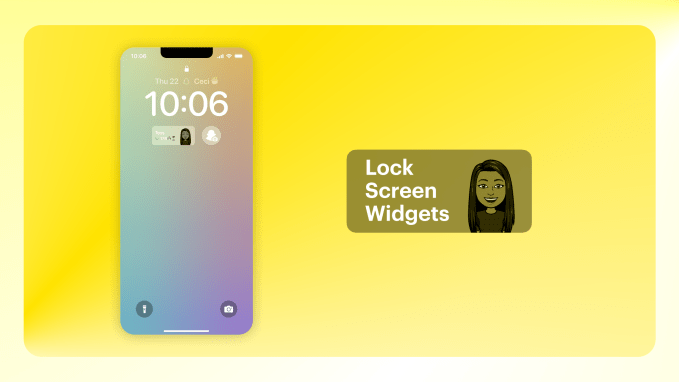
Image Credits: Snap
- Snapchat rolled out two Lock Screen Widgets with its iOS 16 update. One is a small square widget that opens directly to the Snapchat camera. The second is a rectangular widget that opens to a conversation with a friend or group.
- Facebook introduced a set of iOS 16 Lock Screen widgets, offering two to choose from: “Birthdays at a Glance” and “Top Updates.”
- Google introduced its set of iOS 16 Lock Screen widgets, but didn’t have them ready for launch day, unfortunately. The coming widgets include those for Search, Maps, Gmail, Chrome, Drive and News. We still need Google Calendar!
“App Store features don’t matter anymore” my ass. This graph shows new users over the last 30 days.
Notice anything different about iOS release day when I was lucky enough to be included in some App Store editorial lists?
Lots of users upgrade on day 1 and look there for apps. pic.twitter.com/ITDBv2gS3A
— Emmanuel Crouvisier (@emcro) September 13, 2022
Pappas, in answering @robportman’s question, says that she cannot commit that TikTok American user data won’t be accessed by China because of “confidentiality” of the agreement between the US gov and TikTok.
Portman: This is an arm of the US gov!
— Zamaan Qureshi (@zamaan_qureshi) September 14, 2022

Source by techcrunch.com






















